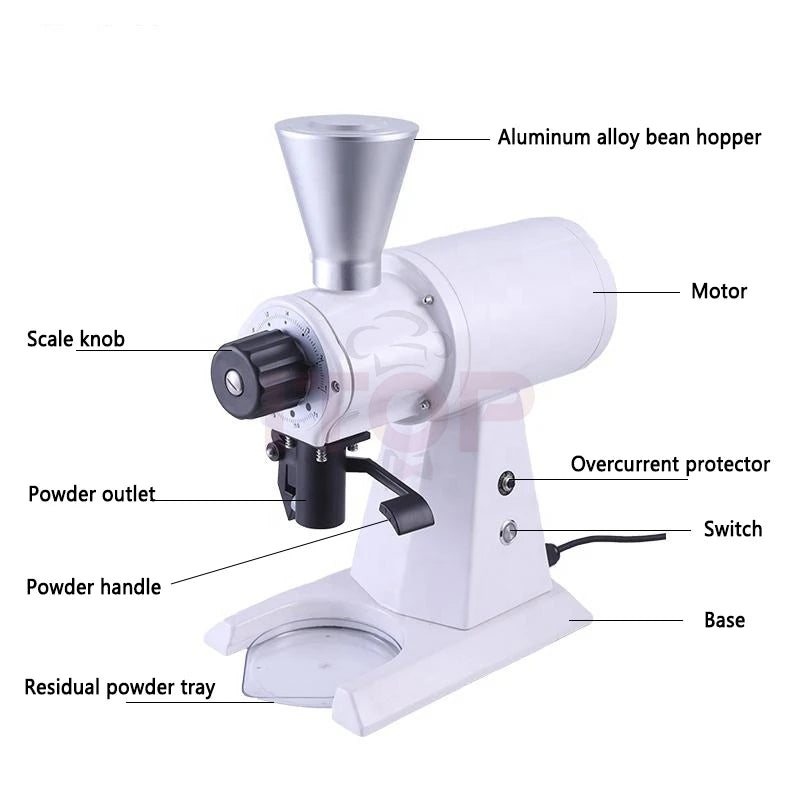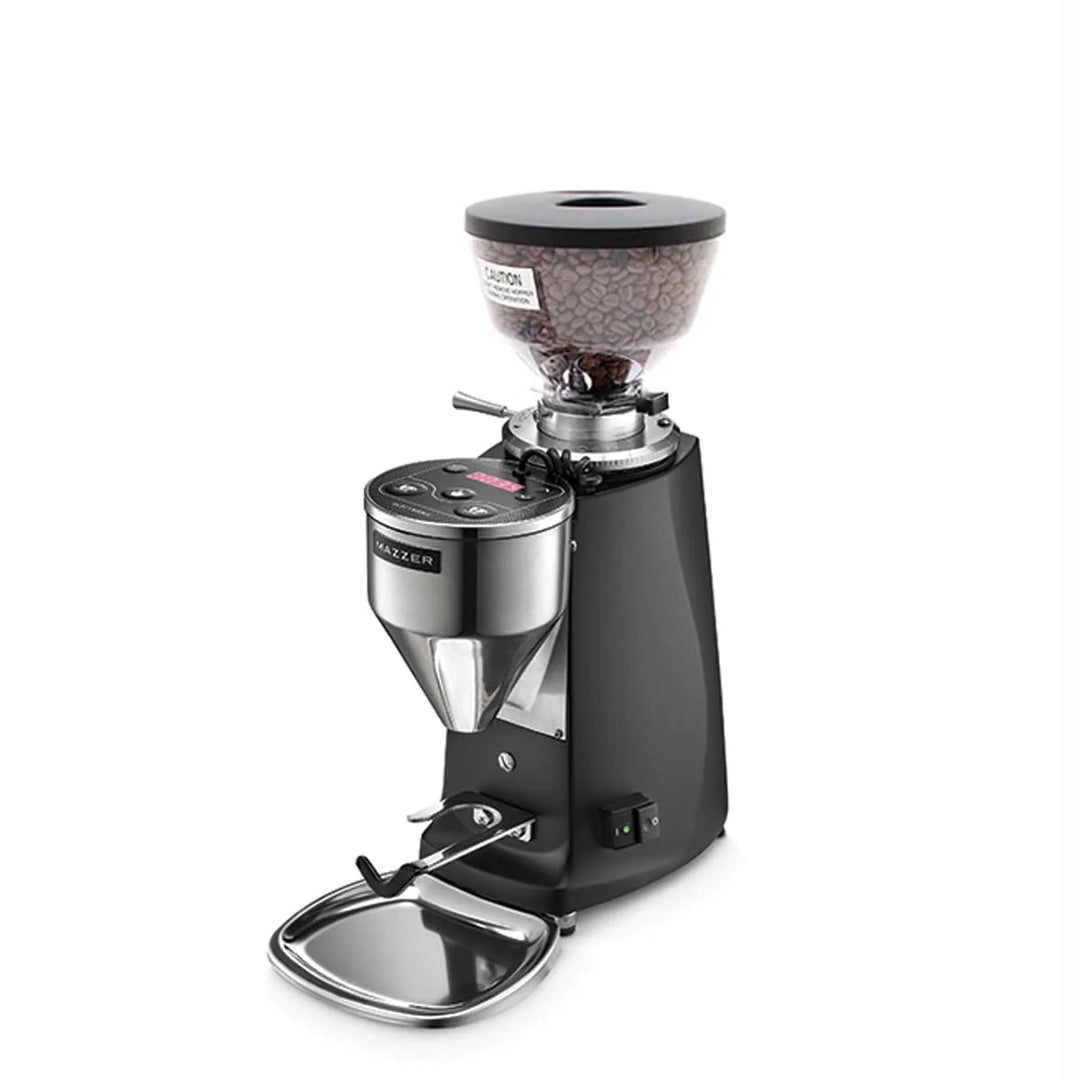Industrial Coffee Grinder Shopping Guide for Expert Coffee Makers
Industrial Coffee Grinder Shopping Guide for Expert Coffee Makers
Blog Article
Just How to Pick the Perfect Industrial Coffee Grinder for Your Business
Picking the excellent commercial coffee grinder for your business is a complex decision that calls for cautious factor to consider of a number of vital variables. It is vital to evaluate your certain grinding requirements, including the volume of coffee processed and the desired work consistency, as these aspects directly influence flavor and client fulfillment. Additionally, comprehending the different kinds of grinders offered can significantly affect your functional performance. As you navigate these factors to consider, one must likewise consider the implications of spending plan and maintenance. What various other factors could make or break your selection?
Assess Your Grinding Needs
When choosing a commercial coffee mill, one have to initially assess their grinding needs to guarantee ideal efficiency and uniformity. This first analysis entails comprehending the quantity of coffee to be refined daily, in addition to the preferred work dimension for numerous developing methods. A high-capacity mill might be essential for businesses offering huge amounts of coffee, while smaller sized procedures may discover a much more small design adequate.
Moreover, it is crucial to take into consideration the kinds of coffee beans being used, as various beans may require specific grinding methods to achieve the most effective taste profile. Oily beans could necessitate a mill created to deal with such characteristics without overheating or clumping.
One more critical variable is the called for work consistency. Specialty coffee businesses commonly require accurate work dimensions to boost extraction and flavor, making it essential to select a mill that can deliver uniform outcomes. Lastly, evaluating the readily available area and electrical needs will help in picking a grinder that fits effortlessly right into your operational workflow. By extensively analyzing these elements, organizations can make enlightened decisions that line up with their coffee grinding demands, eventually leading to an exceptional product and pleased clients.
Understand Grinder Kind
Understanding the various types of industrial coffee mills is crucial for making an educated option that satisfies details operational needs. There are primarily two groups of grinders: blade grinders and burr mills.
Blade mills utilize spinning blades to chop the coffee beans, resulting in an inconsistent work dimension - Industrial Coffee Grinder. While they may be more budget-friendly, they are often not ideal for commercial applications where accuracy is necessary
On the other hand, burr grinders provide a more uniform work by crushing the beans in between 2 surface areas. They can be additional categorized right into flat burr and conical burr grinders. Flat burr grinders offer a consistent work size and are usually preferred for espresso preparation, while conical burr mills are versatile and can handle a variety of brew methods, from coffee to French press.
When selecting a mill, consider the specific demands of your company, including preferred work consistency, manufacturing volume, and the kinds of coffee drinks you intend to supply - Industrial Coffee Grinder. Each grinder type has its constraints and benefits, so understanding these nuances allows notified decision-making that lines up with operational objectives
Evaluate Grind Dimension Uniformity
Attaining grind dimension consistency is important for producing premium coffee, as variants in particle size can considerably influence removal and taste. When choosing a commercial coffee mill, it is important to review exactly how well the machine keeps harmony in grind size across different batches. Irregular work sizes can result in irregular extraction, leading to a cup that may taste weak or extremely bitter.
To evaluate work dimension uniformity, consider mills with functions such as flexible work setups and top quality burrs. Burr grinders, particularly, succeed in producing uniform fragment dimensions compared to blade mills. The product and shape of the burrs play an important function, with stainless steel and ceramic alternatives offering sturdiness and accuracy.

Consider Production Capacity
In the hectic globe of coffee manufacturing, taking into consideration manufacturing capacity is critical for organizations intending to meet need without giving up top quality. The production ability of an industrial coffee grinder pop over here directly influences a firm's capacity to fulfill orders efficiently, manage inventory, and reply to varying market patterns.
When analyzing manufacturing ability, it is important to evaluate the mill's result price, commonly gauged in extra pounds per hour. This dimension must line up with your service's projected sales volume and development targets. As an example, a coffee shop with a high turn over may require a mill that can refine a number of hundred pounds daily, while a smaller sized procedure may be enough with a reduced capability design.
Furthermore, think about the kind of coffee being processed. Different beans and blends may impact grinding rate and effectiveness, necessitating a mill with the ability of dealing with varied production demands. It's likewise worth factoring in the mill's ability to keep consistent top quality under high result problems, as any fluctuations can impact the end product.
Ultimately, selecting a mill that matches your organization's production ability will ensure you continue to be affordable and responsive to consumer assumptions.

Budget and Upkeep Elements
When assessing the ideal industrial coffee budget plan, grinder and upkeep elements play a significant duty in the general decision-making process. An initial investment in a premium mill can generate lasting advantages, but it's necessary to establish a clear budget plan that straightens with your organization's operational needs. Think about both the purchase rate and potential operational costs, such as energy usage and replacement parts.
Industrial coffee mills call for normal upkeep to guarantee optimal efficiency and durability. Assess the producer's suggestions for maintenance, including cleansing routines and parts substitute, as these will certainly affect long-term functional expenses.

Spending in a mill that is long lasting yet easy to keep can save cash in time. While lower-priced options might be alluring, they might incur greater maintenance prices and minimized efficiency. Eventually, balancing first prices with long-term upkeep and operational effectiveness will certainly direct you to the best option for your company's coffee grinding demands.
Conclusion
Choosing the excellent industrial coffee grinder necessitates an extensive analysis of grinding requirements, mill kinds, grind dimension uniformity, production capability, and monetary factors to consider. An appropriate mill not just boosts the top quality of the coffee generated yet additionally adds to the general success and success of the venture.
Specialized coffee organizations usually require specific work dimensions to improve extraction and flavor, making it right here important to choose a grinder that can supply consistent outcomes. Flat burr grinders offer a regular work dimension and are normally preferred for espresso preparation, while conelike burr mills are flexible and can manage a variety of brew methods, discover here from coffee to French press.
When picking an industrial coffee grinder, it is crucial to review just how well the maker maintains uniformity in work size throughout various batches. Burr mills, in certain, excel in creating uniform bit sizes contrasted to blade grinders.Picking the suitable industrial coffee mill requires an extensive assessment of grinding needs, mill types, grind size consistency, production ability, and monetary factors to consider.
Report this page